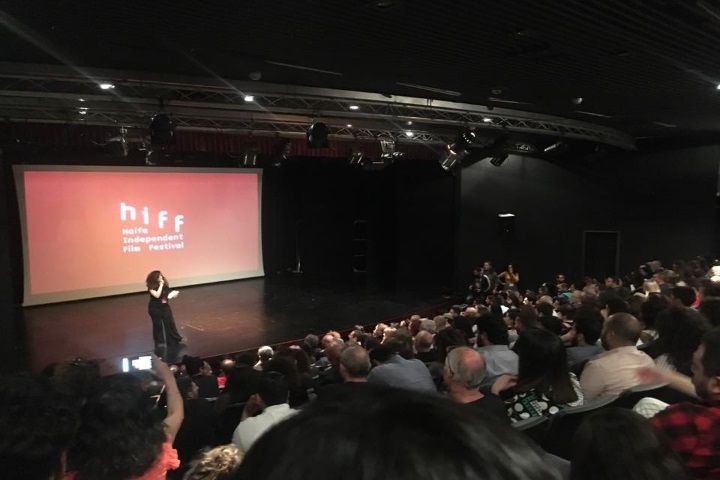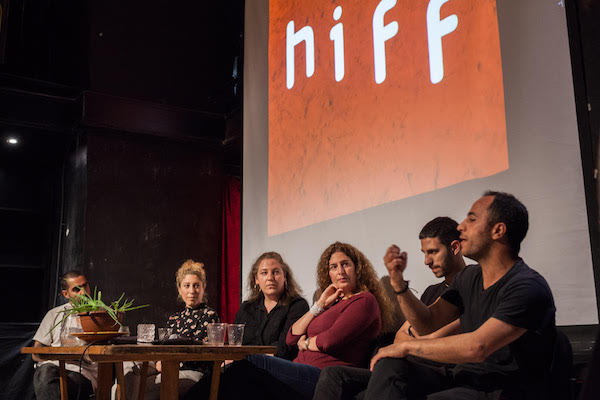For the third straight year, local Palestinian as well as Arab filmmakers from across the world will be able to showcase their work in the Haifa Independent Film Festival.

For the next six days, film lovers will flock to the north for the third annual Haifa Independent Film Festival, which will include both Palestinian films, as well as movies from across the Arab world.
Lina Mansour, one of the festival’s organizers, said Thursday night during a press conference in Haifa’s Khashba Theater that the goal of the festival, like in previous years, is “to develop the Palestinian film scene, and to open doors to the Arab world. This year the festival has grown and become well known — directors from the Arab world have asked us to screen their films, instead of waiting for us to ask them.”
“We are facing a colonial occupation regime that tries to strip us of our culture,” adds organizer Rana Asli. “It is important that we have the choice of what culture we consume. And it is even more important that it comes from us — the people whose culture is being erased — with no governmental, political, or party-based constraints.”
And yet, this year’s festival was not without controversy. The organizers decided not to include a film by Jerusalem Director Muayad Alayan, The Reports on Sarah and Saleem, after the BDS movement decided it had violated one of its principles when he cast two Israeli actors, Ishai Golan and Sivane Kretchner, in the movie. The film’s creators say that Golan and Kretchner have spoken out against the occupation and in support of Palestinian rights, and thus the film should not be subject to boycott.

“After a vote, we decided not to screen the film,” says Ayed Fadel, one of the organizers, in response to a number of questions by journalists on the matter. “It does not mean we automatically support the boycott movement on this issue. We respect both sides, and Muayad Alayan screened a film of his at the first festival.”
“The festival has a clear Palestinian identity, which tries to follow the principles of the boycott,” Fadel added. “We have partners in Ramallah as well as Palestinian foundations that give us their support. When it comes to maintaining the festival, while continuing to build trust with the Arab world, these are the most important principles guiding us.”
For actor Ramzi Maqdassi, who appears in Raed Andoni’s Ghost Hunting, which will be screened this coming week, “the occupation has kept our culture on pause for 70 years. We are slowly freeing ourselves.”
And what about Israelis who want to come to the festival? The organizers say that although it is a Palestinian festival, anyone who wants to come, enjoy, and support the local Palestinian film scene, is welcome.
This article was first published in Hebrew on Local Call. Read it here.

